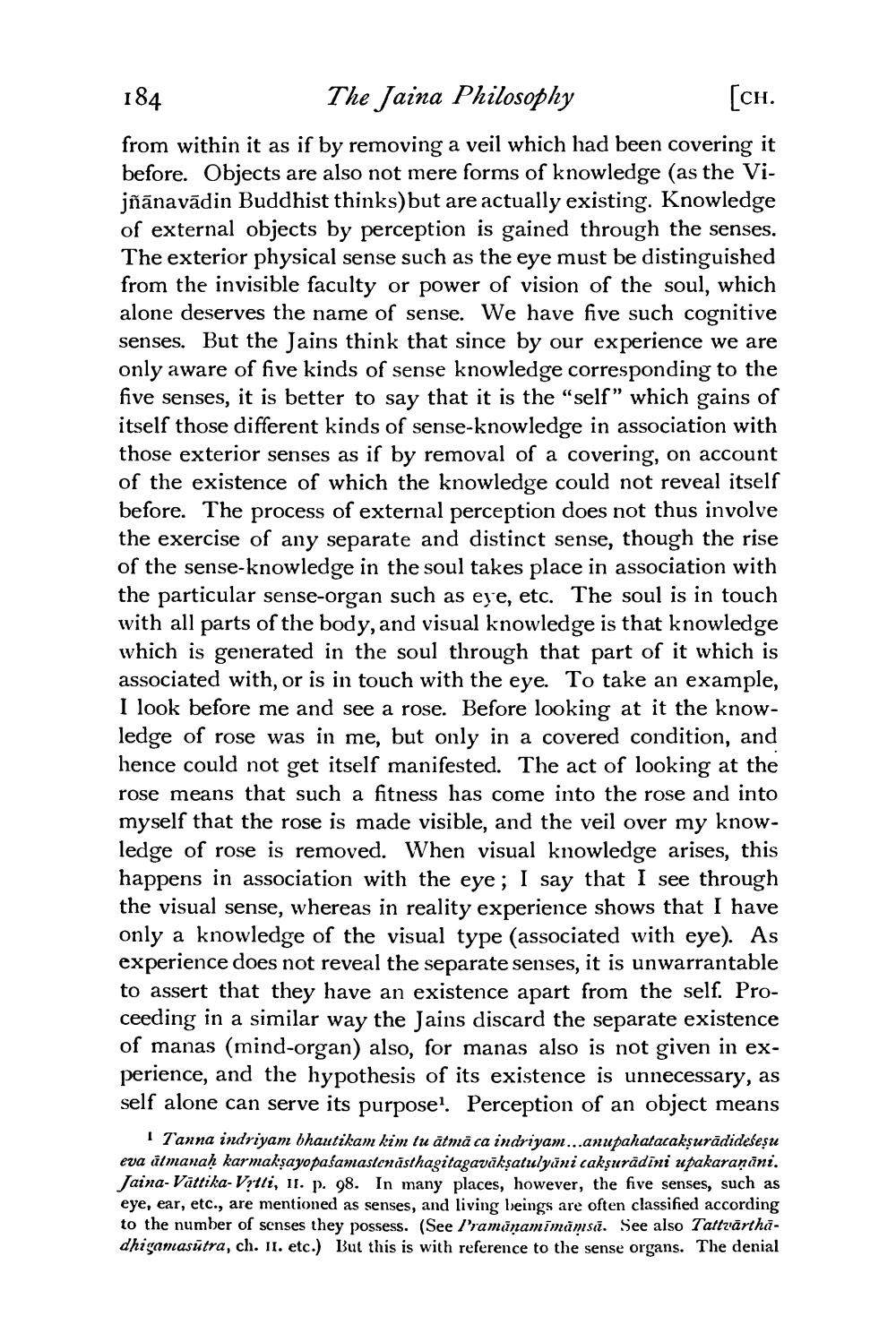________________
[CH.
184
The Jaina Philosophy from within it as if by removing a veil which had been covering it before. Objects are also not mere forms of knowledge (as the Vijñānavādin Buddhist thinks) but are actually existing. Knowledge of external objects by perception is gained through the senses. The exterior physical sense such as the eye must be distinguished from the invisible faculty or power of vision of the soul, which alone deserves the name of sense. We have five such cognitive senses. But the Jains think that since by our experience we are only aware of five kinds of sense knowledge corresponding to the five senses, it is better to say that it is the "self” which gains of itself those different kinds of sense-knowledge in association with those exterior senses as if by removal of a covering, on account of the existence of which the knowledge could not reveal itself before. The process of external perception does not thus involve the exercise of any separate and distinct sense, though the rise of the sense-knowledge in the soul takes place in association with the particular sense-organ such as eye, etc. The soul is in touch with all parts of the body, and visual knowledge is that knowledge which is generated in the soul through that part of it which is associated with, or is in touch with the eye. To take an example, I look before me and see a rose. Before looking at it the knowledge of rose was in me, but only in a covered condition, and hence could not get itself manifested. The act of looking at the rose means that such a fitness has come into the rose and into myself that the rose is made visible, and the veil over my knowledge of rose is removed. When visual knowledge arises, this happens in association with the eye; I say that I see through the visual sense, whereas in reality experience shows that I have only a knowledge of the visual type (associated with eye). As experience does not reveal the separate senses, it is unwarrantable to assert that they have an existence apart from the self. Proceeding in a similar way the Jains discard the separate existence of manas (mind-organ) also, for manas also is not given in experience, and the hypothesis of its existence is unnecessary, as self alone can serve its purposel. Perception of an object means
l'anna indriyam bhautikam kim tu ātmā ca indriyam...anupahatacakşurädidesesu eva åtmanaḥ karmakşayopasamastenästhagitagavākṣatulyüni cakşurădini upakaranani. Jaina-Vättika-Vrtli, Il. p. 98. In many places, however, the five senses, such as eye, ear, etc., are mentioned as senses, and living beings are often classified according to the number of senses they possess. (See Pramīņamimiimsi. See also Tattzarthadhigamasutra, ch. II. etc.) But this is with reference to the sense organs. The denial




